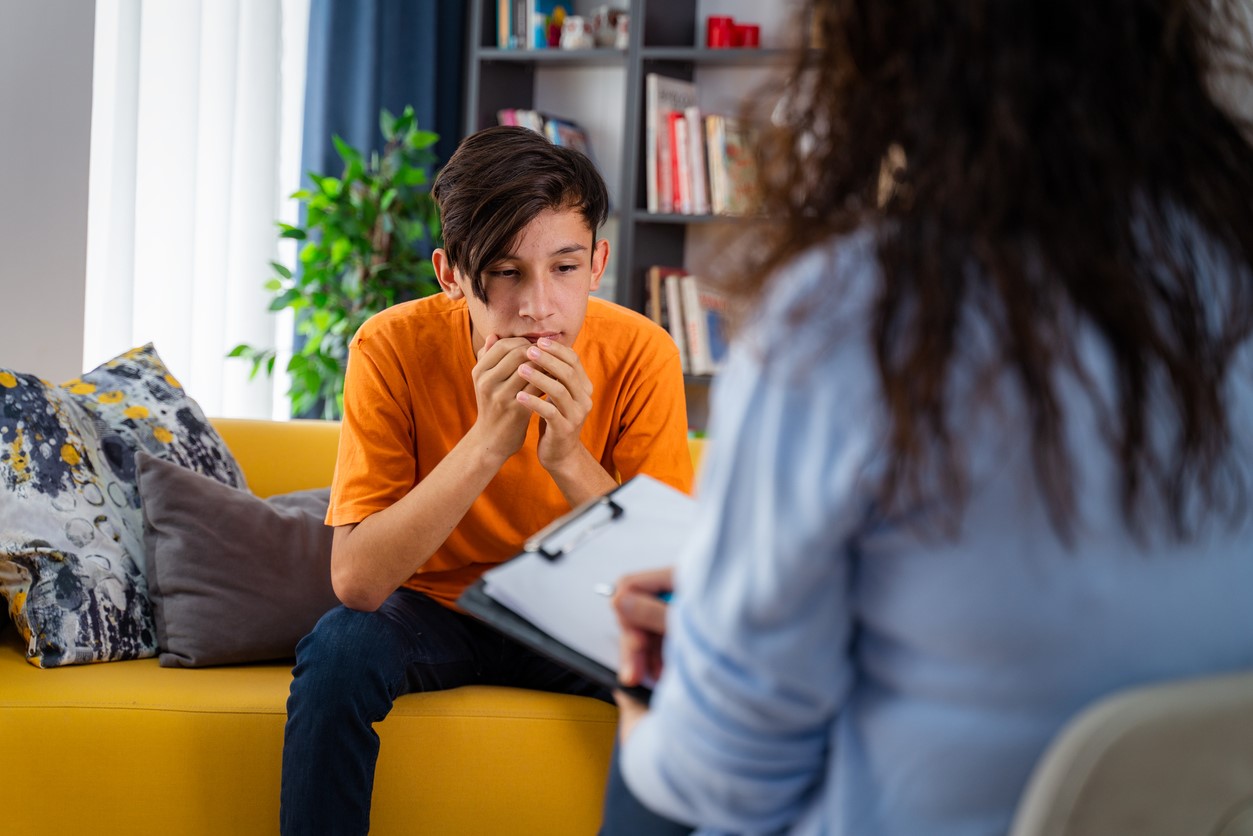Mental health counselors have a lot of tools they can utilize to help people overcome their mental health challenges and heal from traumatic events. Not all techniques are right for everyone, or every situation, but it is very likely that multiple techniques will need to be utilized for almost any patient.
Here are a few of the tools that a mental health counselor has available to them:
Therapeutic modalities
Therapeutic modalities are therapies that involve the use of thermal, mechanical, electromagnetic, and light energies. There are many opinions on how well these types of therapies actually work but regardless they are something that a clinical mental health counselor should consider especially if a patient expresses interest in trying them out.
Massage is one of the least controversial therapeutic modalities. Massage has long been shown to increase relaxation, positive mood and thoughts, and help with pain relief.
Electrostimulation and magnetic therapy are more controversial modalities that are quite popular.
Assessment tools
Mental health counselors spend a lot of time assessing and diagnosing patients. There may be many different initial assessments that are conducted during the first few sessions a counselor has with a patient. Of course, this all depends on how complex the patient’s issues are. There are plenty of patients where a single session will be all that is needed to determine the nature of the problems they are experiencing. Treatment on the other hand can take some time.
Mental health counselors use a variety of assessment tools to help them with their initial diagnosis. Some of these assessments may be a series of commonly used quizzes and questions that patients are asked to answer as honestly as possible with no judgment. It is important for mental health counselors to emphasize that honesty on screening questionnaires and quizzes is important to get them the care and help they need to overcome their problems. Answers are considered part of a confidential medical record that remains private except under very extreme circumstances.
All patients will fill out an initial general health questionnaire containing questions that assess short-term health and mental states. This is used to assess nonpsychotic and common short-term mental health issues that are often resolved within a fairly short period of time without any severe treatment. Based on the initial intake and general health questionnaires, a mental health counselor may decide to screen a patient for depression, anxiety, or find out how severe a problem like insomnia is so they can offer realistic solutions and treatments.
Some mental health counselors use software programs that have a variety of accepted and approved assessment questionnaires that they can offer a new patient. This can simplify matters considerably because the assessments are entirely digital, and the results can be easily stored. This also offers the option of allowing the patient to complete the assessments in advance of their first session so counselors have a lot of information to use to make the most out of time together from the very beginning.
Telehealth sessions
During the COVID-19 pandemic, more people than ever before took advantage of telehealth appointments to take care of their physical and mental health needs. Telehealth sessions offer mental health counseling services to those who may otherwise not attend sessions.
Mental health counselors should strongly consider allowing patients to have the option of telehealth for at least some appointments, especially if they feel they need a session quickly or are simply unable to attend a live session for any reason at all.
Telehealth makes it possible for people who are housebound, live in rural areas, or lack sufficient transportation to receive mental health services. Disabled individuals or those recovering from health issues can receive the counseling they need no matter where they are.
Behavioral interventions
Unfortunately, there are times when a patient may be experiencing issues that require an intervention. This is a great tool for a counselor to have in their kit but it must be used very wisely if it is to be effective. A poorly planned intervention can do more harm than good. There are different types of interventions, and goals may vary considerably depending on the type and severity of the behavior.
Substance abuse is a good example of a behavior that sometimes requires a very serious intervention. Over the past few years, there has been a dramatic rise in the rate of alcohol and drug abuse among people of all backgrounds. Interventions for substance abuse have become more common.
Most interventions are not as dramatic as that. A more common example of a behavior that would benefit from an intervention is a younger person having tantrums or sometimes physical outbursts. A mental health counselor would first recognize and gather background information on the undesirable behavior. The next step would be to form a plan that rewards and encourages good behavior while helping eliminate the high level of emotions that lead to undesirable behavior. Learning coping strategies is another skill.
Removing oneself from the environment that is contributing to an undesirable behavior is ideal whenever possible. Consider that one of the ways that drug addicts have the highest level of success when attempting to recover is when they stop allowing themselves to interact with people who enable or encourage their use of illicit substances.
Mindfulness and relaxation techniques
Mindfulness is a form of meditation where the goal is to relax and just concentrate on the immediate. Finding a peaceful place and just keeping one’s mind in the moment and not letting it drift into thoughts of the past or future may seem challenging at first but many people are finding that it is incredibly rewarding to take part in this type of meditation.
Relaxation techniques are something that practically everyone can benefit from in today’s fast-paced world. Here are a few other tips to help with destressing:
Prayers and spirituality
No matter what one’s faith or spiritual beliefs may be, it can be relaxing to practice them. Even for people who have not been spiritual in the past, exploring some beliefs they may be curious about can be soothing and relaxing. Getting in touch with nature can be spiritual if one works on forming a deep connection, and it allows them to be at peace in their mind.
Yoga
Yoga can do a lot to not only help people relax but also help them get and stay in better physical condition. Yoga requires concentration on the present and can be a form of mindful meditation. There are different levels of yoga classes available, but if one has a physical disability or health condition that they think might impact their ability, they should ask their physician for their opinion. A doctor may be able to suggest some positions or routines that are within their range of ability.
Avoid screens or dramatic entertainment before bedtime
Reading a book or listening to music before bed can be a great way to relax. Try to use an e-reader like a Kindle or a paper book rather than a tablet because the blue light that radiates from screens has been shown to affect the sleep patterns of some people.
Try to find music and books that do not contain any emotional triggers. Before bed is not necessarily the time to read violent or really dramatic thrillers if one is experiencing emotional distress or having trouble sleeping.
Many of us are in the habit of watching TV or staring at our cell phones before bed or even throughout the night. This can make it very hard to relax and get back to sleep so that one is sufficiently rested and better able to take on the challenges of tomorrow.
Get out in the great outdoors
Spending time outside can help relieve stress and anxiety. Walking the dog, going to a park and spending some time reading outside, or walking trails can make a big difference to mood and it can improve physical health.
Taking along a loved one or friend can make the experience even more enjoyable. A picnic in the park can offer everyone in the family an escape. For those with children, a park with a playground can help keep them entertained and allow them to get some exercise while the parents take some time to destress too!
Communication skills
Being able to communicate effectively and comfortably is important. Some people who are experiencing mental health issues or other problems may not realize that their communication skills are lacking and contributing to some of their problems.
Practicing by carrying on a conversation is the best way to assess communication skills. Patients can benefit from learning how to speak at a proper volume and pitch. Body language is another important aspect of communication that is often overlooked. Body language can change how words are perceived — the person that is being addressed may make a sudden assumption based on body language. For example, a positive tone and words may be seen as insincere if said by someone who has their arms crossed and is standing in a defensive way.
Speaking too slow or fast are common speech problems, especially if the person is suffering from mental health conditions such as depression, anxiety, or mania. A person may not be able to get a message across if it is said so fast that the listener cannot follow it properly.
Art and expressive therapies
One of the favorite types of therapeutic techniques used by mental health counselors is art and expressive therapy. These tools include journaling, storytelling, music, reading, drawing, painting, sculpting and dancing. This type of therapy draws on our innate desire to create something meaningful and, more often than not, beautiful to us or others.
Being creative can help a person become more in tune with their innermost thoughts and feelings. In addition, the creative arts also help us relax. Art and expressive therapy techniques and activities can help people achieve a better work-life balance because they offer a way to disconnect from work and other obligations. Even a short period of reading something one enjoys, or drawing, can make a big difference in overall morale and wellbeing.
Sewing, knitting, and other crafts also fall into the category of art and expressive therapies. Some of these activities can be done as part of a group or by taking a class, meaning there is ample opportunity to interact and be inspired by others. A group or class can help those who are reluctant to socialize come out of their shell a bit and learn the joys of friendship all over again.
Clinical mental health counselors are in demand
There is a major shortage of counselors and mental health workers in North America. Over the next decade, the need for counselors is set to increase even more.
Online CACREP CMHC programs from Walsh University are a great way to pursue a counseling degree and help people each and every day. The degree program coursework can be completed online but students are also required to complete 100 practicum and 600 internship hours. These in-person hours can be completed at a location that is within a reasonable commute.
Coursework will provide students with the skills they need to counsel and care for people from diverse backgrounds and situations. Courses in addiction counseling will help prepare counselors for the challenges they will face in helping people conquer addictions permanently.
Conclusion
Clinical mental health counselors provide valuable services to their communities. It is important that everyone understands how important it is to ensure that mental health services are available to everyone when they need them.
Counselors have a lot of methods and tools available to them, making it easier than ever to find realistic solutions and create reasonable achievable treatment plans with patients and their families.



